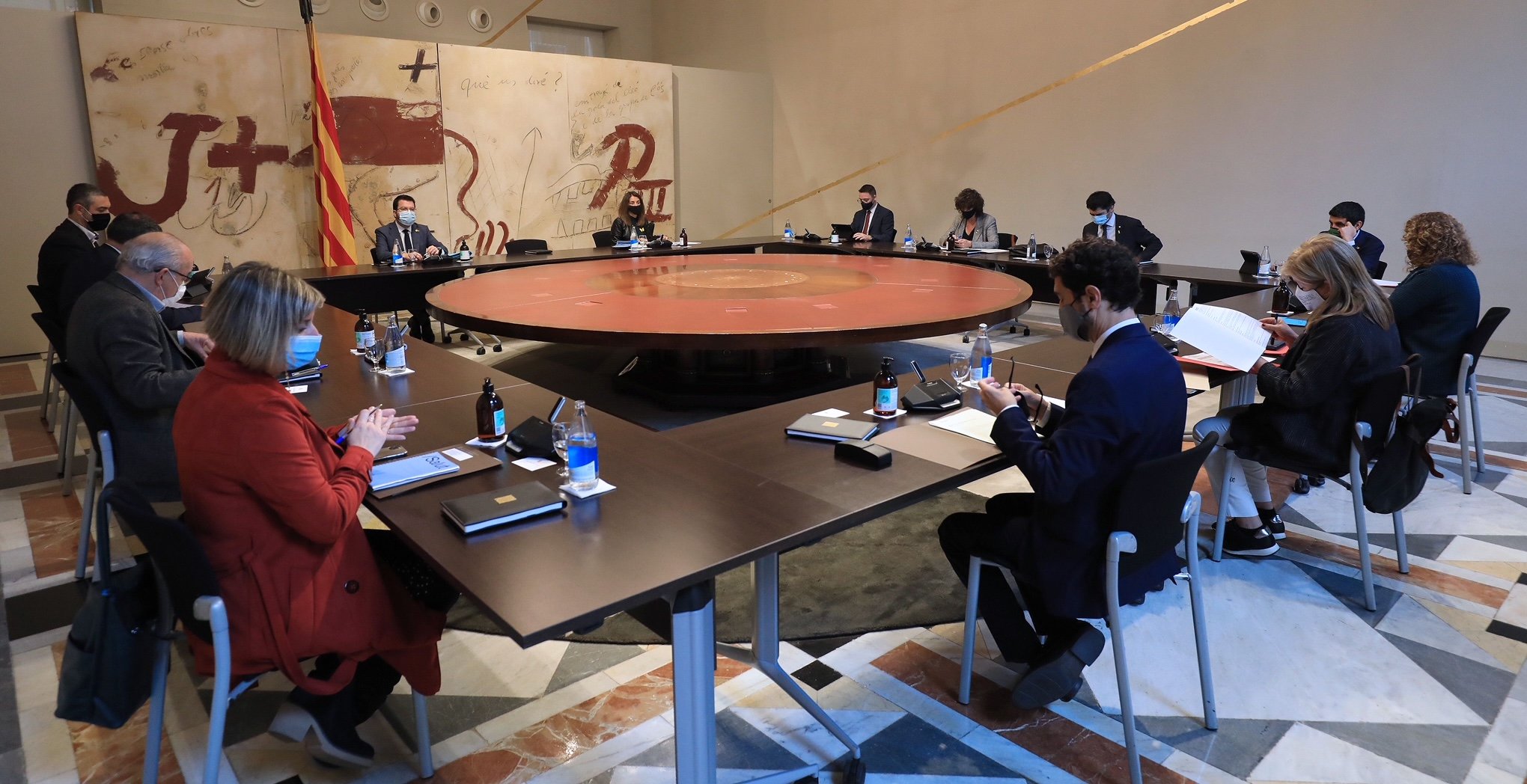The precise goals of last week's major Spanish police operation in Catalonia may still be unclear, but the Civil Guard raids are now having repercussions on Catalan politics. Operation Volhov, the huge operation which saw 21 Catalan independence sympathisers arrested, charged with a variety of offences and then released, is impinging on the Catalan government by means of transcripts of conversations between some of those investigated - in particular, former ERC politician Xavier Vendrell - and members of the current Catalan executive. The Civil Guard investigation claims that a lunch which Vendrell had with the Catalan health minister, Alba Vergés, on October 2nd, is evidence that Vendrell tried to exploit his influence in the co-governing party to obtain contracts.
Although the Catalan government spokesperson, Meritxell Budó, avoided commenting on the matter by (incorrectly) referring to the case's subjudice status, the press conference following this Tuesday's meeting of the Catalan cabinet was dominated by questions on the allegations of misuse of funds and influence peddling made in the operation, whose 21 initial arrests included some former senior government officials.
Budó avoided making any assessment of the accusations, attributing the operation to a "narrative that continues to criminalize the independence movement". But she also avoided giving any view on whether a lunch meeting between Vendrell and Vergés might violate the code of ethics and the law of transparency and good governance, since the meeting was not on the minister's official agenda.
"You should talk about private lunches with the people affected, not with me. I don't know who my government colleagues are having meals with," the spokesperson responded.
According to the Civil Guard investigations, Vergés had lunch with Vendrell in a meeting that lasted more than three hours on October 2nd in which "he wanted to make some reflections". The investigators' report said that these were "probably" aimed at winning a contract with ICAM, a public health body that assesses disabilities and work accidents.
However, in response to the suspicions raised by the investigation about possible influence trafficking, Budó expressed confidence in civil servants and the hiring and purchasing they carry out.
In fact, when asked directly if Vendrell or former CDC leader David Madí had any influence in deciding government contracts, she gave a very clear "no".

